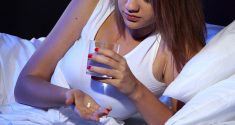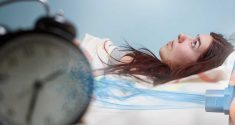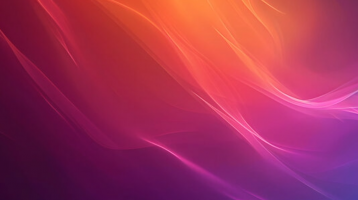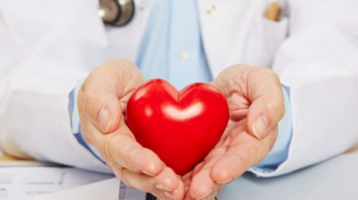Insomnia and risky drinking are so closely intertwined that it is estimated that at least one-third and up to 91% of all people who suffer from sleep disorders also consume alcohol heavily. A new study suggests that perceived stress and depression play a role in the relationship between the two conditions—which is perhaps not surprising. However, because the relationship between insomnia and heavy alcohol consumption works in both directions, the influence of stress or depression depends on which condition came first, according to the analysis.
The Relationship Between Insomnia and Alcohol Consumption
“We were primarily interested in how insomnia leads to alcohol consumption, and we found that this appears to be primarily through stress. However, when we reversed the pathways, it appeared that alcohol consumption primarily led to insomnia through depression,” said Jessica Weafer, lead author of the study and associate professor of psychiatry and behavioral health at The Ohio State University College of Medicine. Identifying these types of mediating factors can have important implications for treatment. “If people with insomnia are experiencing high levels of stress, we may be able to reduce the likelihood that their insomnia leads to heavy drinking by targeting the stress. That’s the long-term ideal or hope that this work could have an impact on treatment.”
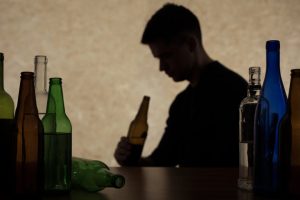
“The number of people with AUD who also suffer from insomnia is very, very high. That’s striking and important,” she said. The participants in this study were part of a larger project testing the effectiveness of a digital intervention for insomnia in people with sleep disorders and heavy alcohol use. A total of 405 volunteers completed questionnaires assessing the severity of their insomnia, their current and past drinking behavior, and perceived symptoms of stress and depression. Stress and depression often overlap but are different—the stress scale measures the extent to which life situations are perceived as stressful, while the depression scale measures behaviors and feelings related to hope, fear, happiness, and loneliness. Previous research has shown that stress or depression, or both, can contribute to sleep disturbances or heavy alcohol consumption, according to the study’s first author, Justin Verlinden, a doctoral student in cognitive neuroscience at the University of Kentucky. “There are so many different causes that could explain sleep disturbances and alcohol consumption. We wanted to establish the connections and see if there was a link,” he said.
The Influence of Stress and Depression
Analysis of the data using various statistical models revealed that stress and depression influence the relationship between insomnia and risky alcohol consumption in a variety of ways. “When we look at stress and depression separately, we find that there is an indirect link between insomnia and alcohol consumption, as well as between alcohol consumption and insomnia – meaning that much of the relationship between insomnia and alcohol consumption can be explained by perceived stress or depression,” said Verlinden. “When stress and depression are considered in the same models, unique results emerge, even though stress and depression share many common characteristics.” A model of insomnia that predicts heavy alcohol consumption showed that the characteristics of stress—beyond the symptoms shared with depression—better describe this relationship.
In a model with the reverse order, in which alcohol consumption predicts the onset of insomnia, the associations are better explained by symptoms of depression that are not shared with stress. This finding was surprising to the researchers, but it demonstrated the advantage of looking at stress and depression in the same model to see how these pathways may differ depending on the direction. Both stress and depression are described as partially indirect pathways—meaning that there are a number of other factors that could explain the link between poor sleep and alcohol problems, according to the researchers. The findings are more of a snapshot and do not explain how insomnia and heavy alcohol use become linked over time, or where depression and stress fit into this evolving relationship. The team is currently collecting a final data set that will allow researchers to track insomnia, stress, and depression over a 12-month period to gain a better understanding of the interconnected pathways.

